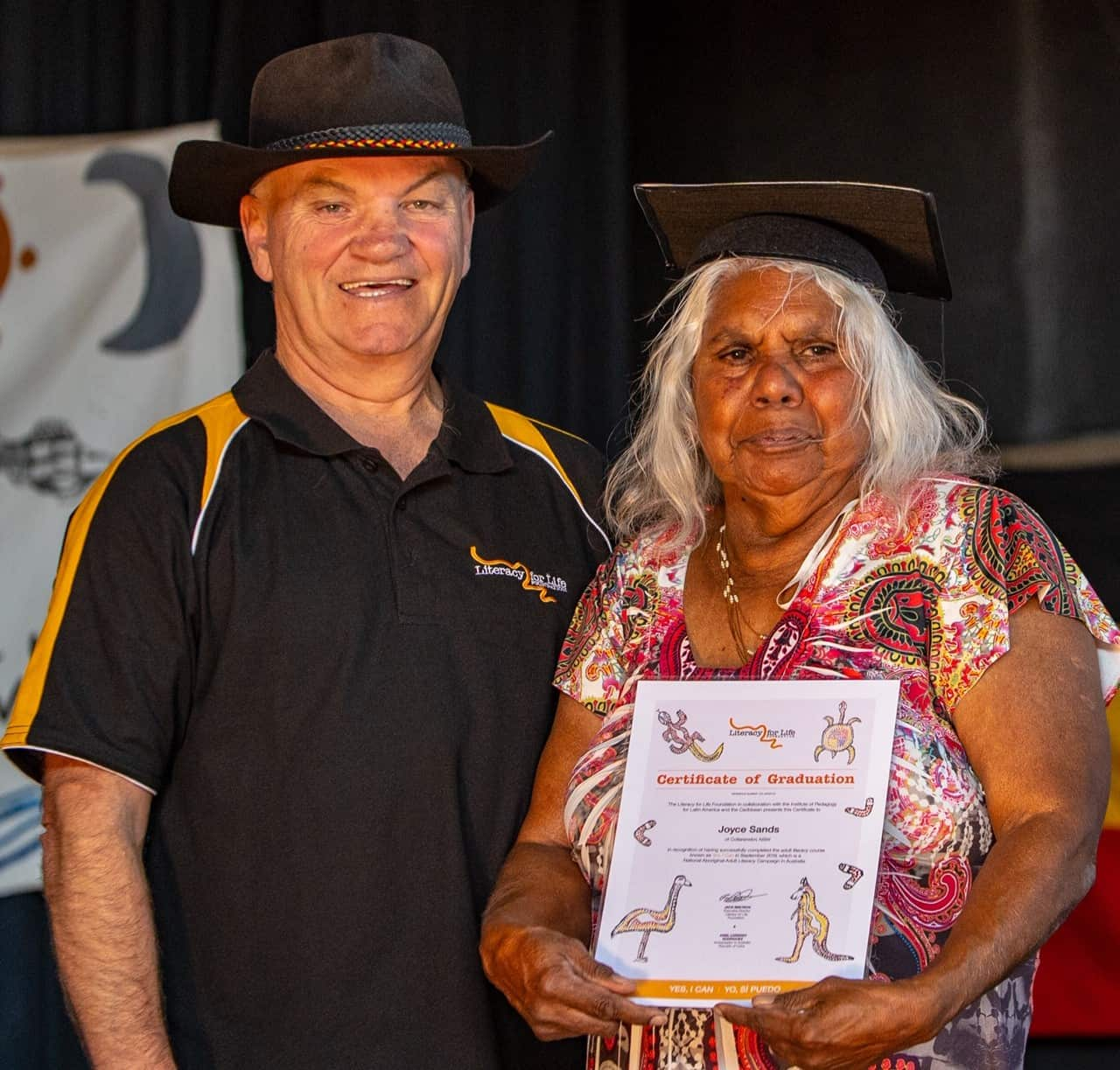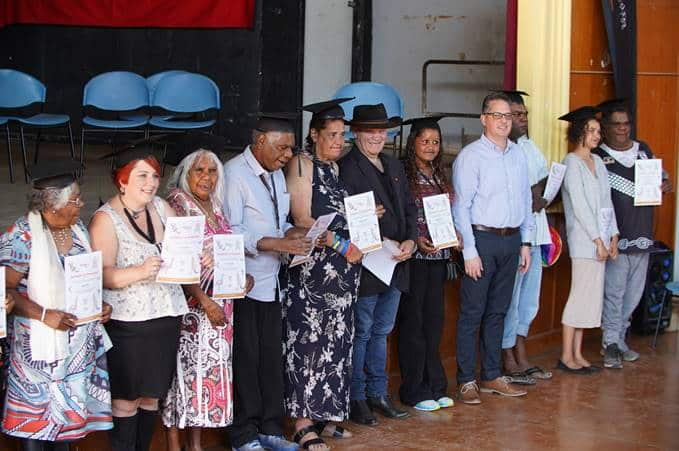Video above: is a story on turning a life around via Professor Jack Beetson's program, in Brewarina. Stream Insight's full episode, Reading Between The Lines via SBS On Demand.
Imagine not being able to read the dosage on a medicine bottle, or looking at a text message from a family member only to see a jumble of letters staring back at you.
Unfortunately that was the reality for many in the town of Collarenebri, in north-western NSW.
Just under half of the town’s population identify as Indigenous, and 84 per cent of the total population, surveyed by the Literacy For Life Foundation (LFLF), had not completed high school. Many adults in the town struggled to read and write which had huge effects on their day to day life.
“I know in many of those outback communities where people are living in social housing of one kind or another and they get letters in relation to that housing and their tenancy and they can’t read them and quite often people will just throw them in the bin,” Professor Jack Beetson, the executive director of the LFLF said.
“It [illiteracy] causes a whole range of problems, people can’t get a driver’s license they just struggle with everything, you can’t access some of those most basic services that everybody enjoys.”
Stigma still exists
Professor Beetson, a Ngemba man, explains that a feeling of shame is often felt about not being able to read and write, meaning people largely stay silent on the difficulties they are facing.
“It’s historical, it’s one of those common threads, regardless of your culture, where you come from, that adults feel a shame about not being able to read and write.”
But he is adamant that the responsibility to change this lies with all of us.
“The shame of low levels of English literacy in any community, that shame belongs to the people that can read and write for allowing that situation to exist. And we diminish ourselves while we don’t do anything to address it.”

In the 12th Closing the Gap report, tabled in Parliament in February, Aboriginal children were shown to still trail far behind non-Indigenous children in literacy, numeracy and writing skills.
Australia is only on track to meet just two of seven government targets set out to reduce the disparity in health, education and employment outcomes.
For Professor Beeston, the solution is clear, we have to improve adult literacy first if we want to improve anything else.
“If you can’t read and write you don’t even realise there is a gap,” Professor Beetson said.
“How do you close the gap in health for example when you can’t read the dosage on a medicine bottle, how do you comprehend if you can’t read and write that to attend regular medical checkups is a way of preventing some of those common ailments that people face.
“Reading and writing is absolutely fundamental to every aspect of our lives and is fundamental to changing some of those most basic social indicators that define us.”
Making a change
In the town of Collarenebri, of which 41.1 per cent of the population identify as Aboriginal or Torres Strait Islander, the community were keen to make a change. After hearing about the success of the LFLF program in the nearby town of Walgett, they invited the team in to help.
Jack says the programs they run through their aboriginal-run charity are all about training Indigenous people to bring literacy to their communities.

Today in Collarenebri, it’s not unusual to walk past the red shed in town and see Indigenous elders sitting in class teaching little ones how to read and write.
“It’s local people in the classroom, in the lessons with their own people,” Professor Beetson said.
“So you’ll have grandparents teaching grandchildren, grandchildren teaching grandparents and so on and to me that’s what actually makes it work.”
And the program is having success. Early evaluation showed that before undertaking the literacy course, many students were below level one on the Australian Core Skills Framework chart in terms of their reading and writing ability. By the end of the class, not a single student remained at that pre-level one stage.
One woman, who spoke to the LFLF after doing the program, said: “I feel independent now. Like I can do things on my own, I don’t need people to help me. I can send messages without asking my other half ‘what’s this word and what’s that word?’’.
Having completed two full courses in town, Professor Beetson and his team are working hard to secure further funding so they can offer the course to those who have not yet had a chance to participate. If this comes through he estimates they’ll reduce low English literacy in town to about 10 per cent.
“Once you get to that level that’s the tipping point for eradicating adult illiteracy because it becomes self-perpetuating after that because the vast majority of the community can read and write in English,” he said.
And at the end of the day Beetson’s message is clear, “people make better choices in their life when they can read and write.”
Insight is Australia's leading forum for debate and powerful first-person stories offering a unique perspective on the way we live. Read more about Insight
Have a story or comment? Contact Us


